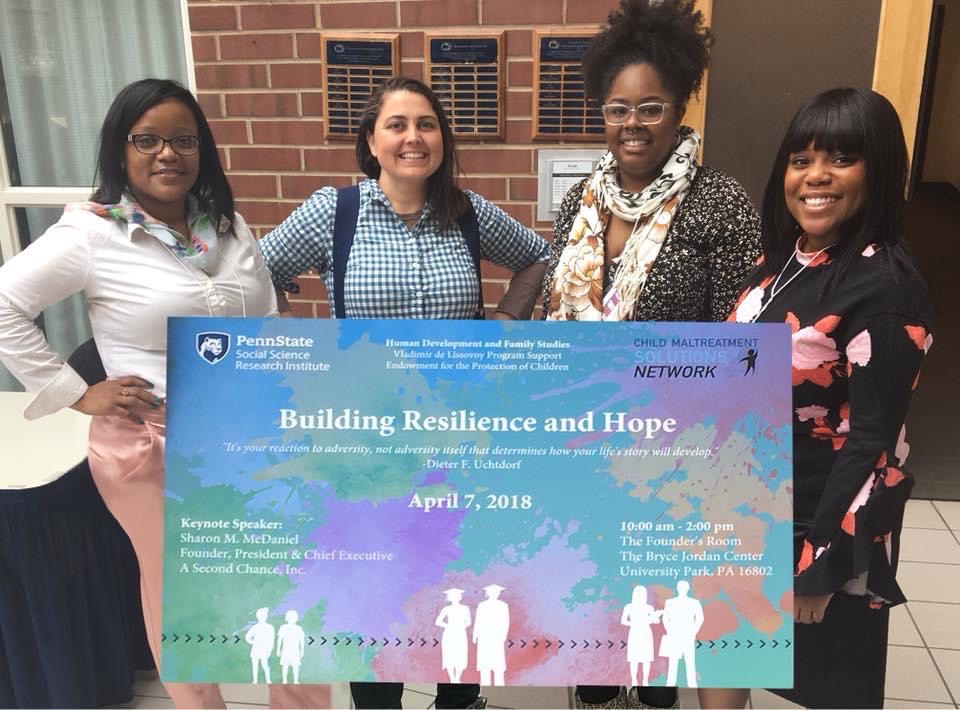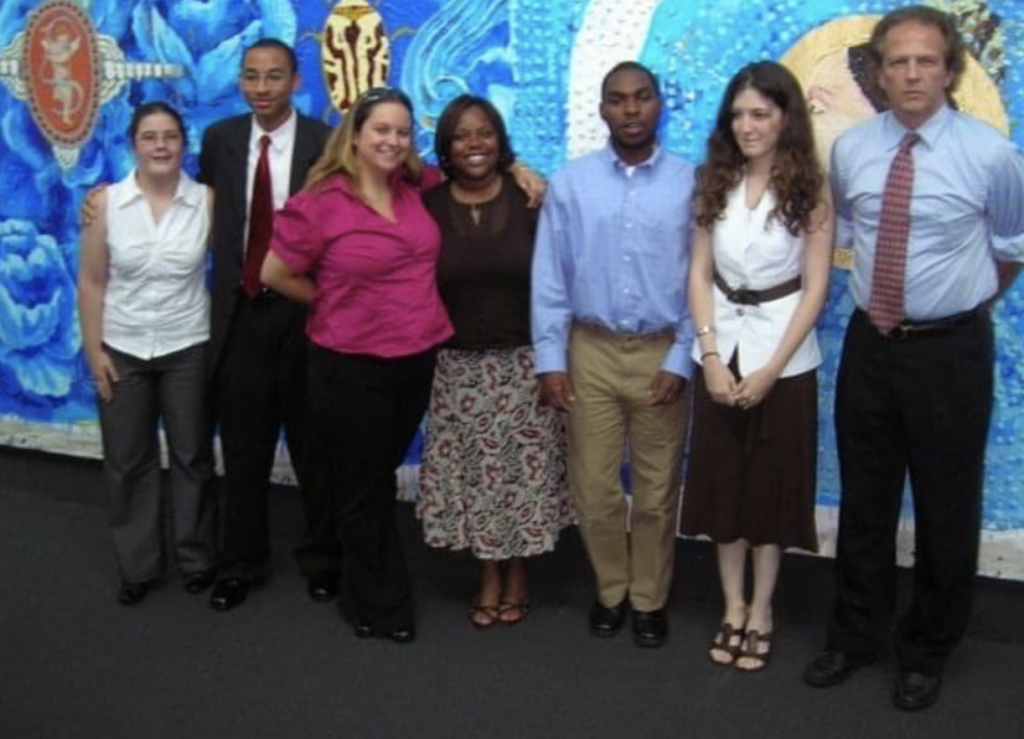Blog
Former Foster Youth Dedicates Her Life to Service and Advocacy

For Stacy Johnson, MSW, JD, former foster youth and Managing Director of Child and Family Services at ASCI, formal foster care was an unfamiliar concept as a teenager. “When I went into care, I didn’t even realize I was put into care until a caseworker showed up and asked me what I needed,” she explains. “I entered foster care at the age of about 16 and I aged out at the age of 21.”
When Johnson initially began aging out at 18, new legislation was being implemented in PA to ensure foster youth supports could be extended by increasing the age limit to 21. “When I turned 18, the system was still set up that when you turned 18, that’s it, your file is closed,” Johnson explains.
Although she was able to maintain a sense of independence, Johnson was not fully prepared to enter adulthood when she initially aged out and needed support through that transition. “At that time, I was approached by my attorney and then a team of attorneys from KidsVoice to talk about staying in until I was 21 or staying in longer because I was in school. Had my case closed at the time, I wasn’t ready at all. [I would’ve thought], ‘All I can do is go into the Armed Forces, buy cigarettes and a lottery ticket. I am not grown. I don’t have that independence.’ Yes, I would have tried to make it, but it would have been a struggle. So, I needed that support.”
I’ve always had this silver lining type of perspective … ‘It can always be worse’ type of thing. So, I didn’t focus on my deficits and what I didn’t have, I focused on my hustle and where I wanted to be. That’s basically how I made it. By being extremely focused, adaptable.
As school was her safe haven and top priority, Johnson continued to excel in the classroom despite the challenges she faced outside it. She adapted quickly to provide for herself and to persist through financial challenges. She says, “In August of 2004 is when I won my case to stay in care until I was 21. I was a full-time student; freshmen year of college, I played soccer to make some extra money—I never played soccer before that, by the way—but I was adaptable.” Johnson says this adaptability is what contributes to the resiliency found among foster youth. “You have to figure out what you can do to make it. I was fast and can kick a ball. So, yes, I played soccer, was a full-time student, worked at CVS, worked at a daycare center and worked in the financial aid office. I had three jobs.”
Passionate about advocacy and schooling, Johnson advocated on behalf of herself and other foster youth to receive more support in the pursuit of undergraduate education. “When I advocated for [the Chafee grant], I got to go to school for free, which would’ve cost over $100,000. I had an academic scholarship, which was not normal for kids in care at Carlow, but they had special scholarships specifically for kids in care at Carlow, Chatham and Duquesne. So, I was one of the recipients of the Take This Heart Scholarship. Room and board, everything was covered except for a few things.”

“When you look at permanency and aging out with Other Planned Permanent Living Arrangement (OPPLA) or Another Planned Permanent Living Arrangement (APPLA), that’s what my goal was. And I feel the impact now,” Johnson says. Despite her ability to excel in undergrad and care for herself during her time in care and thereafter, Johnson shares that her lack of permanency affected her life long-term, and she has now dedicated her life to serving and advocating for children in care. Johnson believes foster youth should never age out of the system and has advocated for better options to be explored when permanency is not possible, to ensure the best possible results for youth in care.
“I petitioned and signed documentation and wrote letters to Congress and senators to get bills passed, and they did pass in Pennsylvania to get OPPLA not to be an option until you’re 16, because there were kids who were 3 getting OPPLA goals [and I thought], ‘What do you mean? They’re going to age out of foster care? There’s so much life to live.’ So, my letter said, ‘If this is the best you can do, you should be ashamed of yourself.’ And the bill passed within a week. Now you can’t have a child with a goal of OPPLA or APPLA until they’re 16, and if they do have a goal of OPPLA or APPLA, there are certain things you have to do … certain things to ensure that’s the last resort. Aging out should never be an option. As long as it’s an option or a goal, that is what’s going to happen.”
Another essential aspect Johnson focuses on in supporting former foster youth is mental health support. “So many alumni I know are going through therapy, and the biggest barrier is that it’s very expensive.” She continues, “I’ve recognized with other alumni … we’re not ready to go back to deal with things until we reach our 30s. And, if you reach some type of stability and normalcy in your life, then you’re able to start unpacking different things. ”

Johnson’s proactive nature and perseverance has helped her thrive in life despite the challenges she has faced. “I’ve always had this silver lining type of perspective … ‘It can always be worse’ type of thing. So, I didn’t focus on my deficits and what I didn’t have, I focused on my hustle and where I wanted to be. That’s basically how I made it, by being extremely focused, adaptable—yes, I’m smart, but I don’t think that’s what got me to where I am.”
As an active child welfare advocate, Johnson is passionate about supporting former and current foster youth through many avenues. She currently serves as Managing Director of Child and Family Services at ASCI; has recently established her own LLC, INRE SJ Consulting, which provides cultural-awareness, including to foster care alumni entering a child welfare profession to do work; and is a founding member of the Foster Care Alumni Association of America’s Pennsylvania chapter. She also petitioned for PA Governor Tom Wolf to provide more support to youth in care and those aging out, during the height of the COVID-19 pandemic.

I know it’s hard to start thinking of the future, but start planning for your future now. It’s a good way to know that things can be different, and they will be different when you’re able to really dictate what happens in your life.
Know that you can advocate for yourselves. You have rights. You can still voice your opinion even while you’re in care. You’re allowed to talk to your judge; you’re allowed to talk to your attorney when you want to if you’re not satisfied with what you are getting.
Be patient with yourselves. Success is what you define it to be, not what someone else defines it to be. Know that your case file is not your full story, present and future. That is only a part of your life, and you can leverage it to benefit you instead of it being something that holds you back.

Stick to your guns. It will work out and pan out. Stay true to who you are.
Stacy Johnson is a graduate of Carlow University, where she earned her bachelor’s degree in political science. She earned her master’s in social work from the University of Pittsburgh and is a recent graduate of the University of Pittsburgh’s School of Law, where she earned her juris doctor.
Johnson is a foster care alumna who has been an advocate for foster care youth since 2005. As a foster youth, she was involved in litigation that was monumental for the betterment of children in the foster care system in Allegheny County, Pennsylvania. She has worked for the Independent Living Initiative in Allegheny County, various emergency shelters and as a certified legal intern for Kids Voice, gaining experience in the courtroom representing youth in care.
Johnson chaired the Southwest Youth Advisory Board of Pennsylvania and is currently a board member of the BACW. She is a recipient of the Children’s Hospital of Pittsburgh’s Champion of Hope and Healing Award for her outstanding dedication and commitment to the health and welfare of children in this region. She has also earned the distinction of being one of the New Pittsburgh Courier’s Fab 40, an award that honors 40 of the regions brightest and most impactful professionals under the age of 40.
Johnson continues to advocate for youth in care through her work at A Second Chance, Inc.